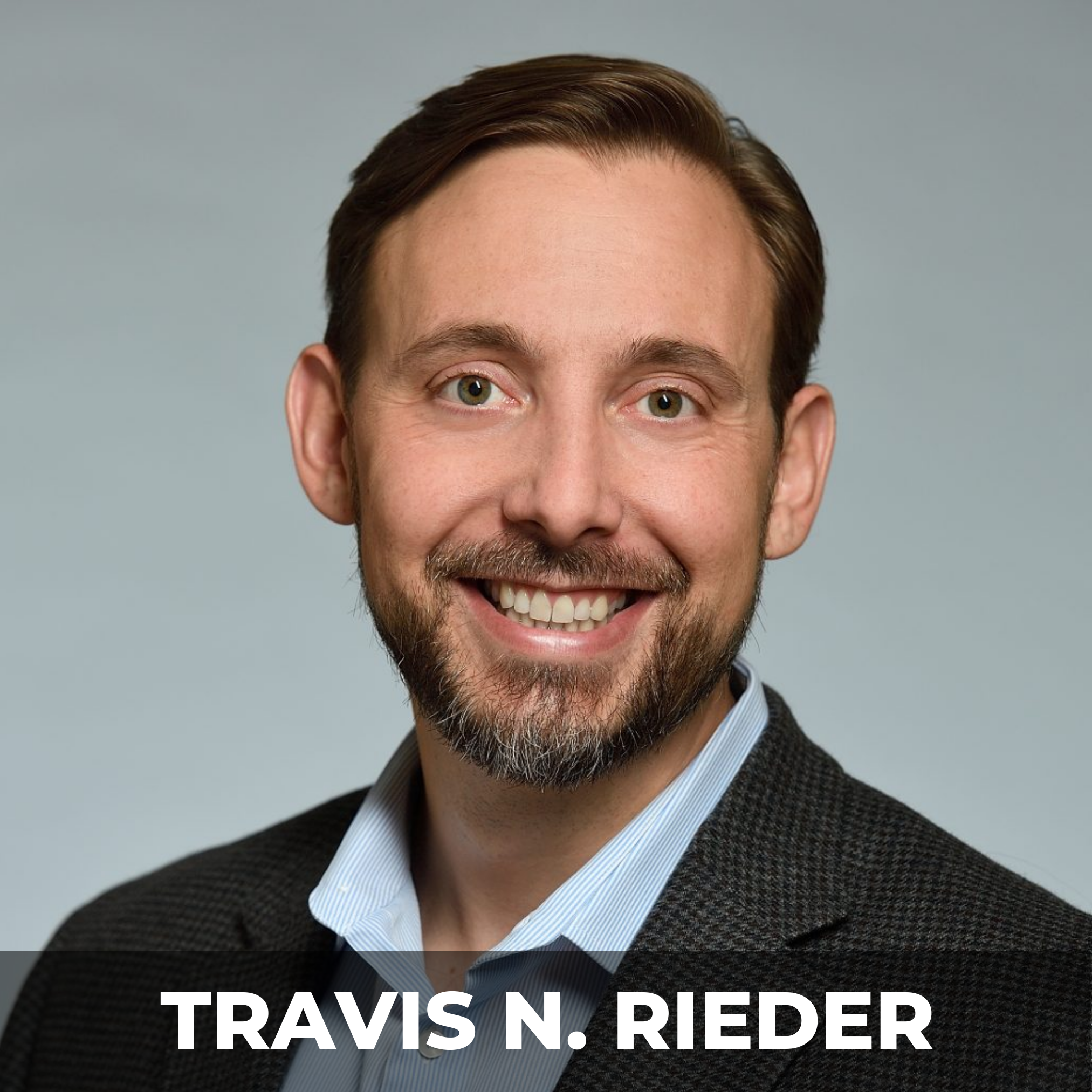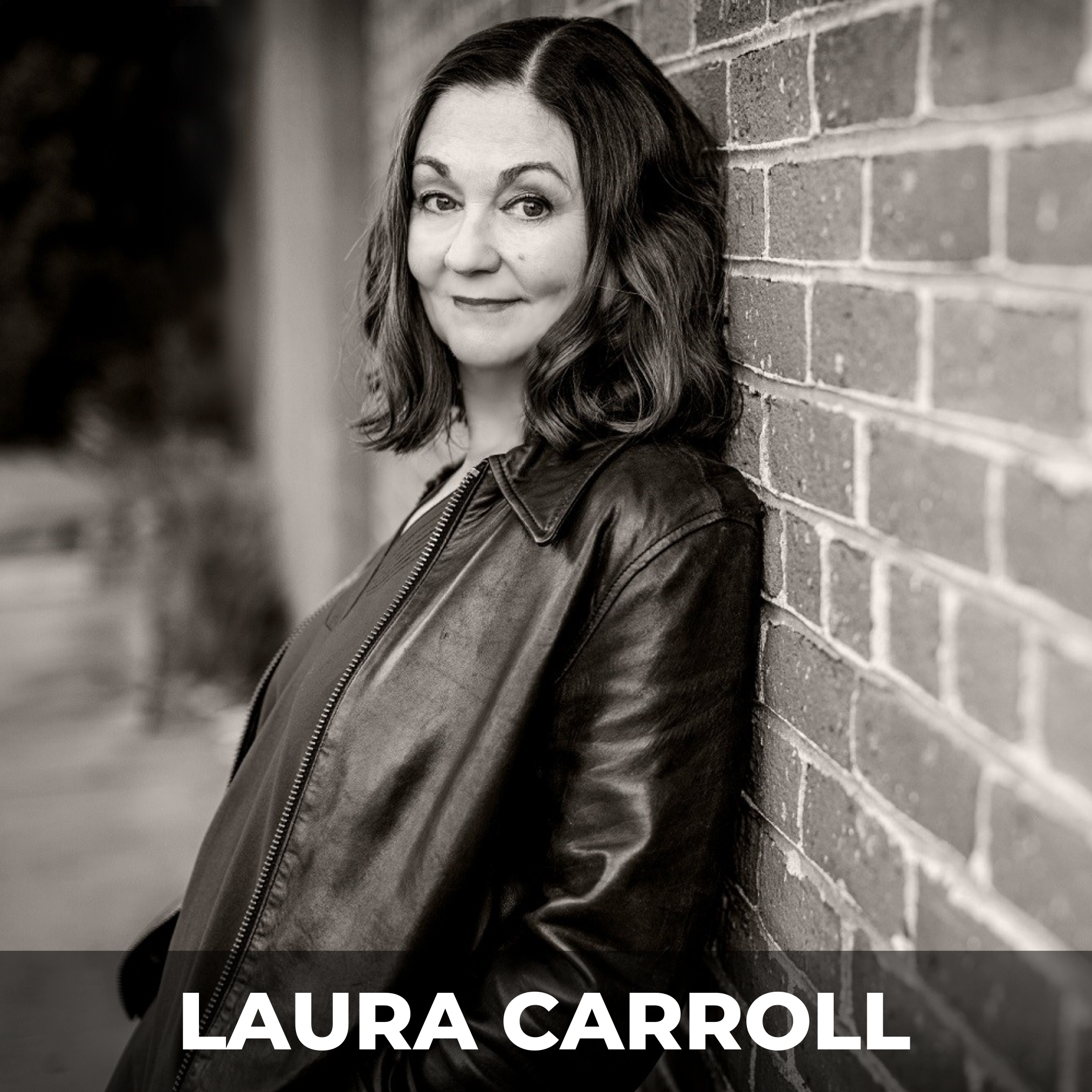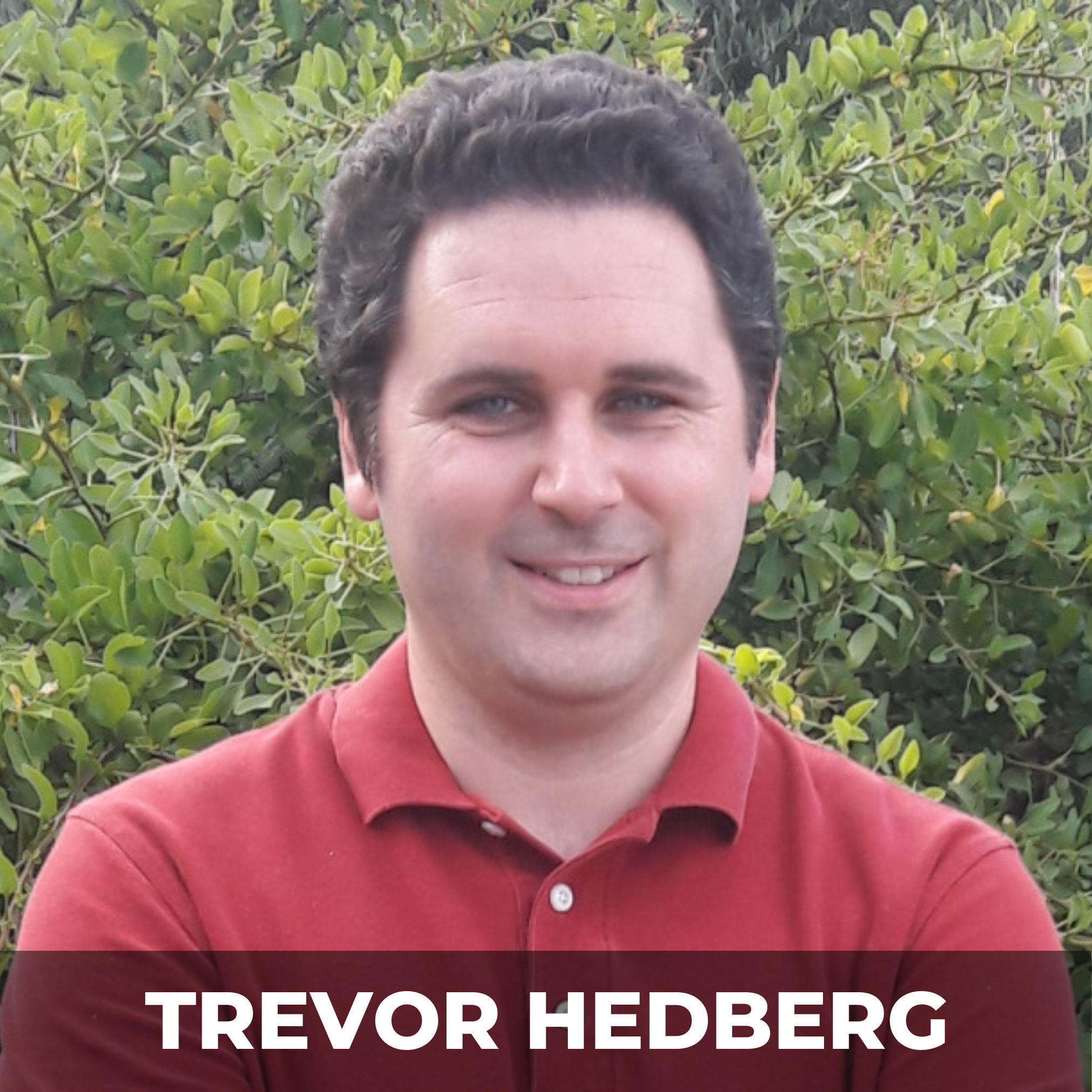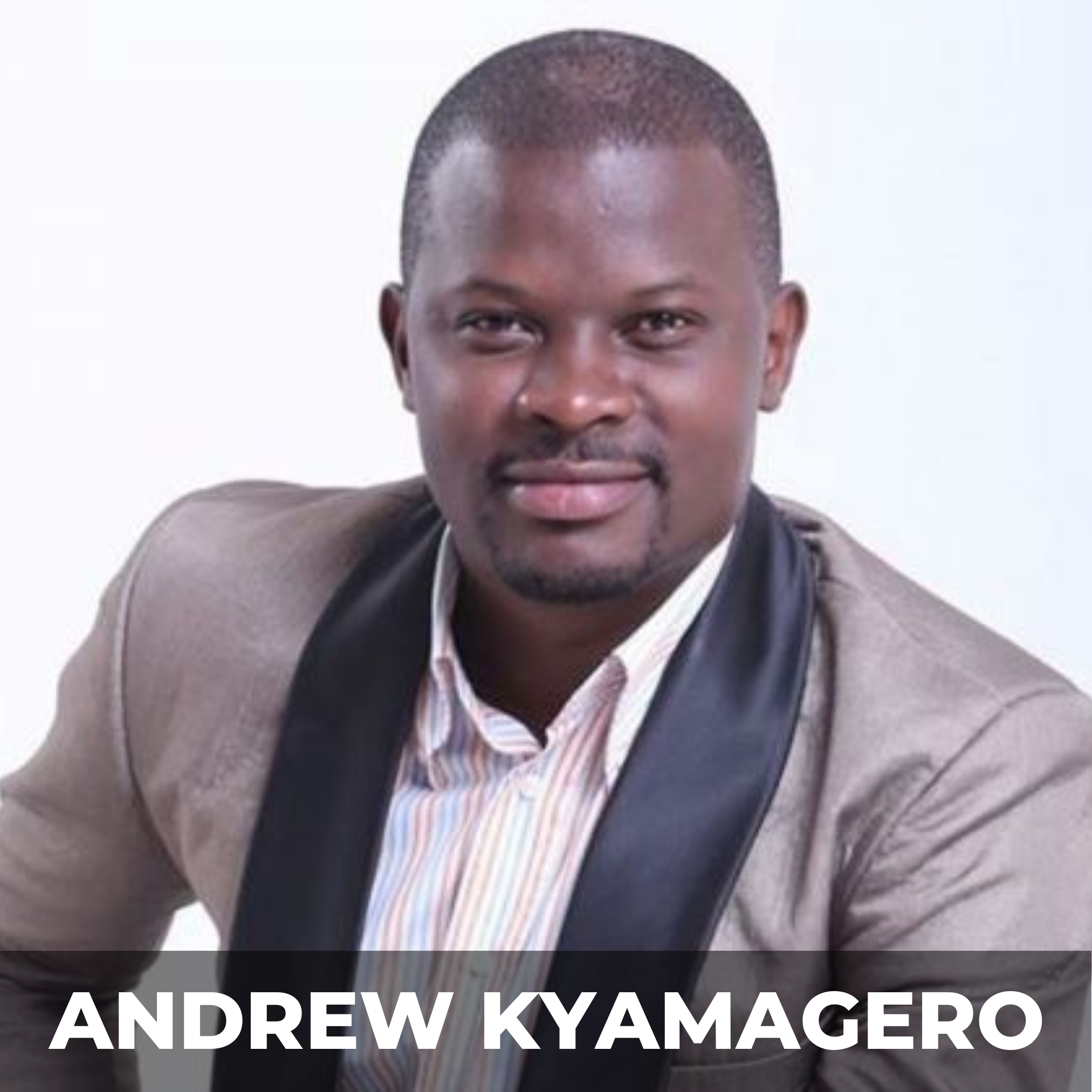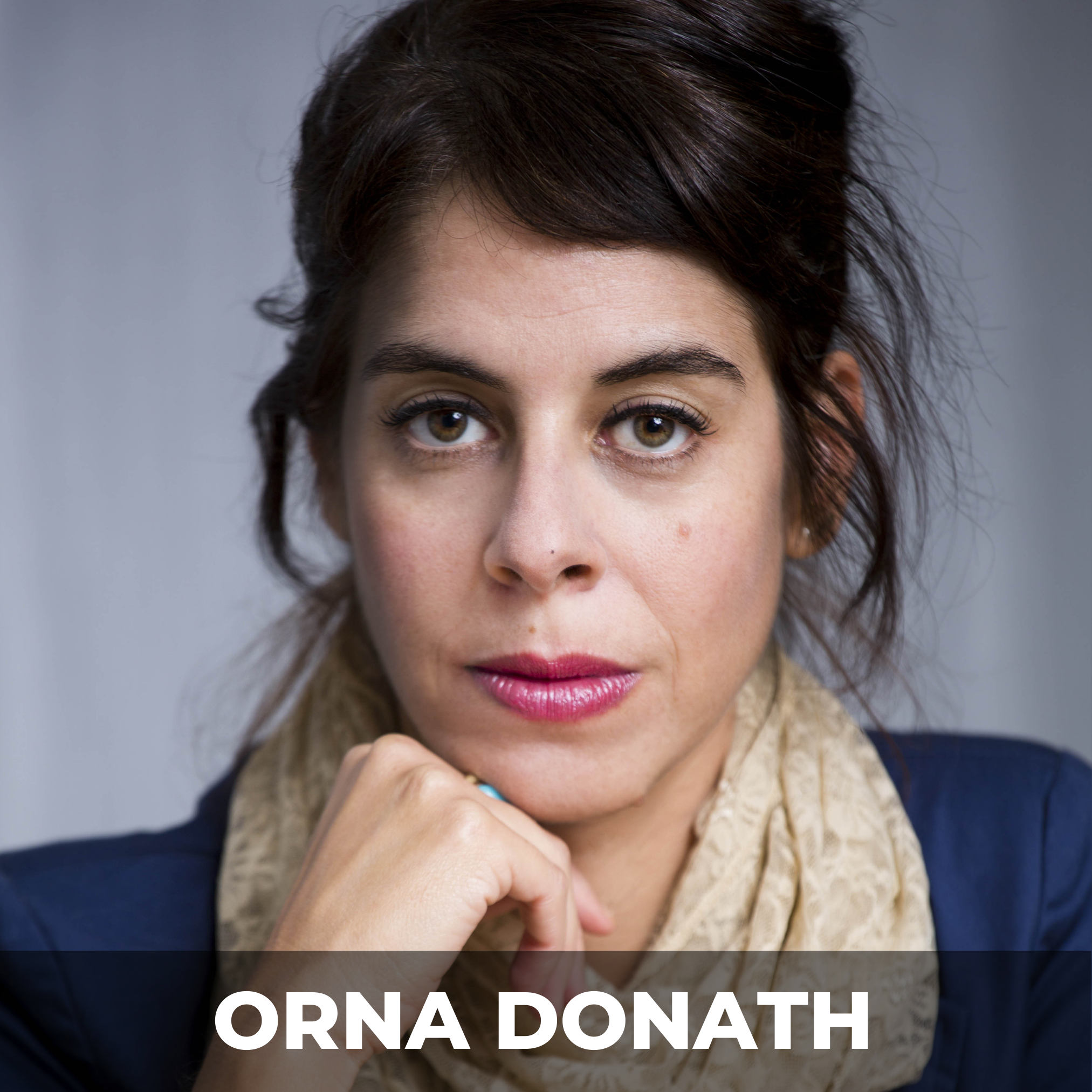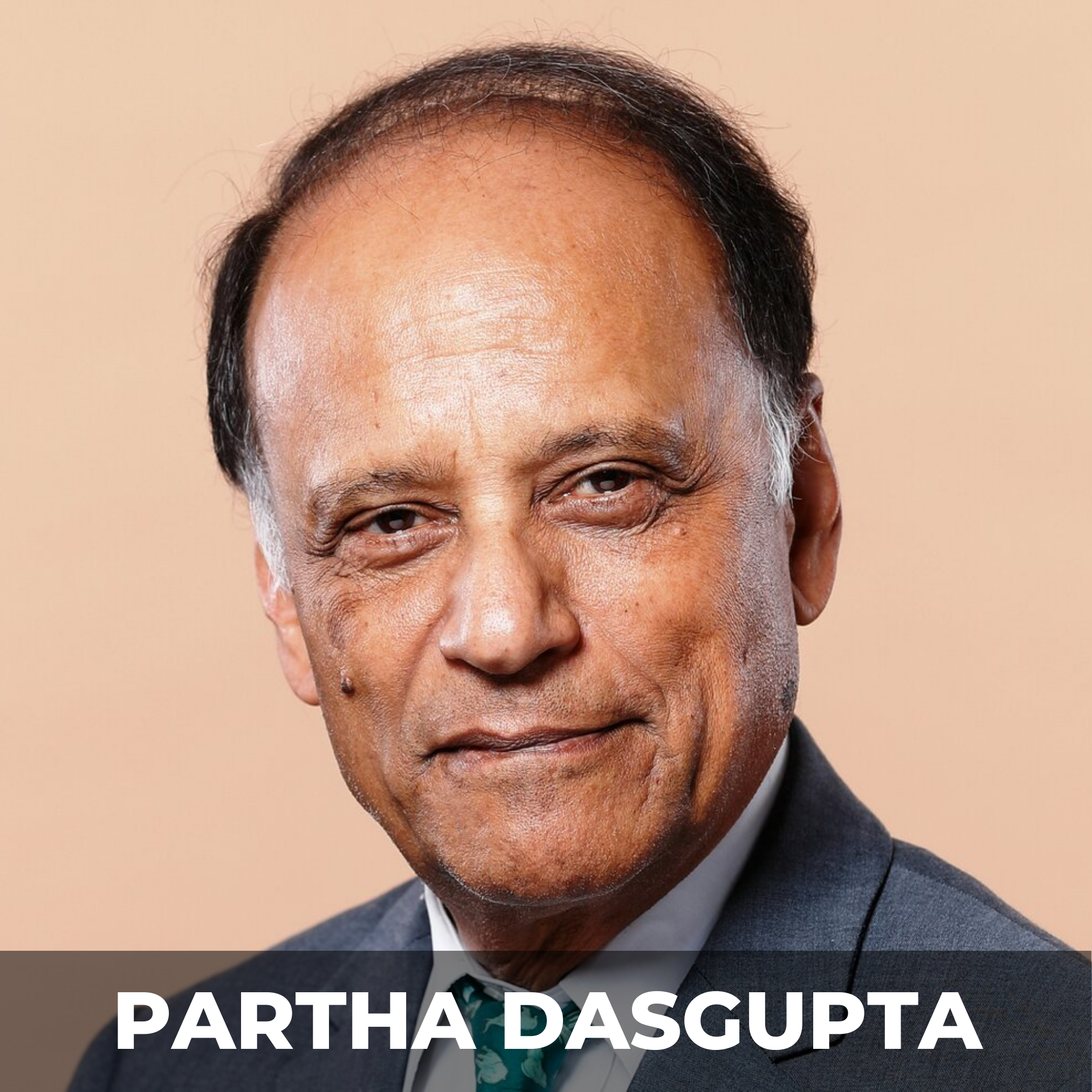Child-First Family Planning
We need to put our children first. Carter Dillard and Karin Kuhlemann of the non-profit, Having Kids, join host Dave Gardner for a very candid conversation explaining "child-first" family planning and how it will benefit our children and make human civilization more sustainable.
MENTIONED IN THIS EPISODE:
-
Dave Gardner 00:02
Are you aware that you and I don't have the right to bring as many children as we want into the world? Did you know our society treats babies more as property than as human beings? That what parents want is given more importance than what our children need and have a right to? Child-focused parenting and what that has to do with overpopulation next on the Overpopulation Podcast. Hi, I'm Dave Gardner, Executive Director of World Population Balance and host of the podcast. Be sure to visit worldpopulationbalance.org for the latest thinking on solving the world's population crisis. While you're there, please sign our Sustainable Population Pledge, sign up to receive a couple of email updates every month, and pitch in with a donation to support the vital work we're doing. On this episode of the podcast, I'm joined by Carter Dillard and Karin Kuhlemann of the nonprofit Having Kids which is doing some bold, pioneering work to give kids a fair start in the world. Carter and Karin, I'm really thrilled to be talking with you finally after way too long. I've been very curious about Having Kids. I've been watching what you're doing, very interested and pleased to follow the work of Having Kids. I'd love to get the founding story. Carter, I know you're one of the co-founders. Can you share a little bit about what caused you to start Having Kids?
Carter Dillard 01:31
Sure, I mean, it was really a group of people who were interested in the assumption that family planning is a personal and private matter to be left to the parents. That seems like the assumption that was in control of family planning systems really since the 1960s and seventies with some exceptions, notably China, but largely what was considered sort of human rights systems at the UN, proceeded from the assumption that family planning should be focused on what parents want, almost exclusively. And that was inconsistent with a lot of literature and academic research on procreative ethics. So we proposed an alternative model, because we felt that there was no group, I mean, nobody wants another nonprofit. But if there's something you can do that no one else is doing, it might be worth it. And we felt like it was time to come forward with a different model for family planning that was focused more on what children need, what future children need, than simply on what parents want, and that there was probably some interest convergence between those two points. And so the group is more about promoting an idea than being a group of people. And the idea and the model is subject to a lot of interpretation and probably different ways to apply it. And Karin, who's with us, is as an expert in procreative ethics, and probably has her own approach to things. But I think we all share the common goal of moving away from a system where parents' subjective choice literally controls what the future of humanity looks like.
Dave Gardner 03:26
It kind of seems like a, "Duh, why didn't I think of that?" Was this a model that someone else was writing about or talking about? Or did this group that you're describing, did you all come up with the idea of child-centered?
Carter Dillard 03:42
I think a lot of academics, and probably a lot of activists understood that a parent's decision to have a child should be limited in some ways by what future children need, or limited in some ways by the impact parents have on the environment, or limited in some ways by things that the community may need the parents to do other than parenting. But we tried to put that together in something that's more palatable and branded and digestible for the average person. And that's something we're still working on as we go. And Karin has been a great help with developing that.
Karin Kuhlemann 04:28
If I can just jump in. I think there is something different about Having Kids relative to the many other population-centered organizations out there, because as Carter has just said, everyone who's interested in population has had the thought crossed their mind that possibly there is a limit to people's freedom to create extra people. So that thought is not new. It's not a thought that people have put a terrible amount of effort into fleshing out. I think that's a great failure. I think in human rights theory, that possibly everyone that works in human rights theory thinks there is a limit to people's right to have children, but no one is willing to go and say where the limit is or how you find it. But what is different, is not just defining of a message as palatable, but the change of focus. So Having Kids changes the focus from the parents to the children. And I think that is quite unique, because you're looking at a world where everyone is it's talking about reproductive rights and procreative freedoms in terms of the parents - what the parents are entitled to do and the parents interests and preferences and what they want to do right now. And while Having Kids is saying, "But you, you're creating a new person, a vulnerable new person, who's going to have equal standing with everybody else here, so we need to think about what do we owe to that person that you would create." And that's the focus of Having Kids like, think about this person that you would create, and what's there for that person rather than what's the immediate satisfaction with parents' preferences at this point in time. And that I think, is quite unique.
Dave Gardner 06:18
Karin, because of the focus of your work, you're probably more aware even then Carter, and perhaps even me about this.
Karin Kuhlemann 06:26
Carter has also done work on this. I think one of the difficulties when you're talking about children as the focus of any sort of decision about reproduction is that we find it very difficult to think abstractly about people who don't exist. And then you end up with quite absurd positions. Someone would say, "You really owed nothing to a future person, or to a child that you haven't created, because they will owe you so much just from having been, you know, brought into existence. That there's nothing that is so wrong that you can do to that person that will offset that credit." And that is complete nonsense. Because creating a person, you're not doing them a favor, there was no one there to benefit to begin with. There is no one waiting in a cloud to be given form. And in that, thank you so much. That is just a standard mistake in moral reasoning that you really pervades everything that you see people do and say when it comes to children is ends up being all about the parents. So people can think more or less rationally about the children of the family, and recognize that existing children might be disadvantaged by a family that's ever-growing. But then you have pronatalism and religious ideas and cultural ideas that have taught us never to question parents who have children, when really, it hurts their own children to have more children. So even that little hook that we could have had as a species to have more responsible conversations about the morality of having children even that we've educated ourselves culturally, not to ever do it. And I think that comes from our past, where fair enough, for most of our existence on this planet, we have not been able to effectively control our procreative capacity or our ability to have children. And it really would not have helped anybody to see, you know, a family is already in dire straits, and then have more children come their way. And then just say, that was a very bad idea, you shouldn't have done that. Look at your poor children now, they have even less to eat and they have even poorer chances of being sent to school or anything like that. So for most of our time on this planet, that was fair enough. But that hasn't been the case for now, a fairly long time, several generations. We haven't lost that habit of never criticizing parents for decisions that they make that effect or the people, that affect their existing children, affect people in their community, affect the child that they have not yet had. And we think of having a child as though is nothing particularly different from just using your money, from freedom of speech, from privacy, what you do in your house. And all of those things are just freedoms, but they are not really comparable to creating a whole new person. But we continue to think and speak of, of the rights of parents, as though the creation of a new person is not particularly different from any other freedom that we have, when that's completely absurd. It's the most serious and consequential thing any person can do, and not just for the environment, for the person that is being created as well, and for the planet that will have to take care of that person and all of their descendants as well. But we have not lost this habits of thought and habits of discourse where we don't question parents, we don't question their decision-making, we don't really think about the children of the family, we don't think about children that haven't yet been born. We never really question that, you know, having a child will perhaps be bad for the community in which that child is being born. And all of those things can and often are true. That having a child can hurt the child that's being born, can hurt existing children of the family, can hurt the community that's going to have to look after that child when, you know, a lot of people have also had children that needed to be looked after and resources have not expanded.
Dave Gardner 10:29
Very well articulated, Karin, thank you for that. And if anyone is new to the podcast, and perhaps even new to the concept of overshoot or overpopulation, I think, let me quickly just explain, give you the one on one on the background of what we're talking about. And that is that on an overcrowded planet, and the evidence is overwhelming that we have overpacked the planet with the number of people and the size of our economy to the point that we are bringing into question the ability of future generations to have a chance to live a decent life, and we owe them, we owe them a chance to have a decent life. And I think that's what you're talking about Karin, and I really appreciate the way you explain that. But I want to ask you the question. Are you suggesting that we need to be critical of couples who choose to have three, four, five, six children?
Karin Kuhlemann 11:21
I think we need to be critical of ourselves and of others is hold people to account, hold ourselves and others to account when we make particularly consequential choices. And having a child is about the most consequential choice that a person can make. And it would be contrary to any sensible understanding of ethics to say, "You can do something that will really affect someone else. But we're not going to ask any questions, we're not going to ask you to explain yourself." We're not going to, you know, ask ourselves was that the right thing to do, even though that other person has not had a say in your choice. They're just completely vulnerable to what you do. And that could be existing children, that could be the community, that could be the child that one has not yet created. None of these people have any say in a prospective parent's decision to have a child, and no sensible version of morality would have us do something to someone else that could very seriously harm that person. And that person has no means of interacting with us, of saying, "Please, I would rather not." And that person hasn't been a part of the decision and still has to bear this costs, the harm, the setbacks to their interests. There's no version of morality where that is plausible, it's just that we don't think in a consistent manner when it comes to procreation. Procreation is unique. But we treat it as though it's just a run of the mill freedom when it clearly is not.
Dave Gardner 12:59
Well, the ethics and the responsibilities and the morality. This is all the subject, I understand, of your doctoral thesis, right?
Karin Kuhlemann 13:08
That's right. Yeah, that's, that's my thesis. And Carter has, of course, written something about that himself.
Dave Gardner 13:14
So I'm guessing because I have so much that I want to ask about just related to the activities of Having Kids that we probably won't have time to get off into this subject in a deeper way. But I'd really love to explore that. So I'm hoping we can schedule a follow up episode where that is just the subject. It's we're probably overdue, we've got an earlier episode or two where we had conversations about this subject with Travis Rieder and some of the people he was working with, but would really love to dig into it deeper with you, Karin, at some point.
Karin Kuhlemann 13:46
Thanks, Dave. I'd be happy to.
Dave Gardner 13:49
Great. Having Kids has, first of all, because you've adopted this Fair Start family planning model, child-centered family planning, doesn't seem like you're spoiling for a fight. You know, it seems like a very peaceful, a very smart way to get people to start thinking about their obligations to future generations. And yet, many of the things that you're doing on the website and that I read about in the news, almost seem to be picking a fight. Forgive me for using that terminology. There's something better, maybe provoking a response. And I really want to applaud you for for the bold action you're taking, because obviously, we're deep into the emergency and I think desperate times call for desperate measures, but I'm really curious about your philosophy. And then also, I'd really love to start kind of going through some of the things that you guys have done starting perhaps with the Sustainable Families campaign, which of course isn't really spoiling for a fight.
Carter Dillard 14:46
Sure, yeah. I think that it's not inaccurate to say that we are escalating the conversation to something that is urgent and laden with emotion. Because I think it should be. Probably not healthy to have a cold, emotionless reaction to something like a looming threat of climate change or bringing children into conditions where they are being abused by parents or starving to death. There's a famous philosopher who says there's no difference between bringing a child into those conditions or imposing those conditions on an existing child. And so reacting to child abuse should raise emotions. But I think the target of our provocation is not necessarily parents. But, for example, there are corporations who are encouraging irresponsible family planning, because they want to sell more products to more consumers in the future, or they want a cheaper labor force when the kids that we would have become employable, or they want greater tax base so that they won't have to pay their fair share of taxes. I think that's inexcusable, and those companies are committing acts of evil, and should be held accountable as such. We have the same standard for politicians. So I think when it comes to things that we consider to be gross violations of human rights, the real targets of our provocative acts are the centers of power. Those are corporations and politicians more so than parents. We do rib folks like the Duggar family, people that have outlandish numbers of children to become famous. We consider that pretty reprehensible. But I think honestly, the real targets of our ire, as a society, ought to be the centers of power that encourage irresponsible family planning because they feed off of the production of children. I think that that deserves an angry response.
Dave Gardner 17:09
Yeah, and you know, when I think about it, I think I have mischaracterized it, because I was just kind of going back to - the first thing that really got my attention was when you issued a public letter to Prince William and Kate Middleton recommending that they could set a good example by choosing to limit their family size. They had already had two children, and you suggested that that should be enough, and they should speak out about it, right?
Carter Dillard 17:33
Right. Yeah. And I think in all cases, you mean that people that are interested in better family planning are also accountable for their the consequences of their actions. So even though it may feel good to denounce families, I don't think that's productive. There is a marked trend towards lower fertility. And I think the idea would be to capitalize that trend by saying, "Look, it's not just about numbers, there are qualitative things that we should consider." So I guess if Having Kids is doing its best work, it's being positive and encouraging good behavior. But when it comes to, you know, companies like Unilever that hold incredible power, or you know, we just did a piece recently on companies that are ignoring climate change because of how regulations might impact their immediate profits. You know, those sorts of things I think we're more willing to be sort of stridently angry about.
Dave Gardner 18:39
But you have reached out to Prince William, to Khloe Kardashian, to John Cena, Elon Musk, Charlize Theron, Stephen Miller. You've publicly made statements, suggestions, requests to these people, or offers to these people. And I'm thinking behind all this, is there maybe this this need, this desire to find some good celebrity spokespeople? Some people who will help shine more light on this kind of thinking? Because it seems like every other cause has somebody. The the anti-fracking people have Mark Ruffalo. Water in Africa has Matt Damon. Who do we have to speak up and get that incredible amount of attention on Twitter and in the media about choosing to have a smaller family?
Karin Kuhlemann 19:29
We have Attenborough here in the UK, of course. David Attenborough is a national treasure, but very few others like him.
Carter Dillard 19:40
Yeah, yes, Karin's right. It's very rare for people to speak out. And you can ask public figures to be explicit about their decision-making. You can also simply laud them for decisions they're already making and publicize those decisions. So we try to do that in some cases. Even if they don't explicitly say it, it's quite clear in what they do if they adopt, for example, never tried to have a biological child, or they adopt after their first child, or do something that they're obviously making some decisions that have beneficial consequences. You can laud them. But it would be great if celebrities would break the taboo around talking about family planning. As Karin pointed out, it's an odd taboo to feel inhibited from talking about that which most determines the quality of life on the planet. But that taboo exists, and it'd be great if celebrities would break it. But at the same time, I do want to say one thing is that we do it with a little bit of mixed emotions. Because the idea behind better family planning, I think should be to empower every child born in a way that makes them a free and equal person. And that will eventually should diminish the sort of degree of hierarchy that we have operating in our society. And celebrities are part of that hierarchy. They impose this sort of idea that some people are more important than others upon us. And so we use the idea of public figures speaking out, but we do it with mixed emotions, because the core of our work would be to empower people so that we diminish hierarchies going forward, including the softer but sometimes more influential hierarchies that public figures impose upon us. So a bit of an abstract point, but an important one.
Dave Gardner 21:30
Yeah, because it is too bad. I was thinking about that very thing. It's too bad that just really great thinking from, from you, Carter, or you, Karin doesn't get attention. We should be really embarrassed about what gets our attention these days. And that is, you know, some celebrity adopts a dog or gets pregnant, everybody's abuzz about that. There's an unrighteous balance of power there. So I'm glad that you would love to see that go away. Good luck.
Karin Kuhlemann 22:00
I don't know to what extent what we say does not get attention. With the taboo in place, it's very hard to judge and once suspects there's a silent majority of people who quietly agree with you. But like they don't want to stick their own necks out. Because why would they? And also they don't know they're in a silent majority. They don't know if the king has no clothes situation. And survey, for example, survey after survey here in the UK has found that the vast majority of people in the UK are concerned about population growth, and would prefer to stop or reverse - a vast majority, we're talking about 80%. But you don't see people, you know, making that a campaign platform, for example, because there hasn't yet been a connection between people who understand the problem and people who have some intuition, there's something wrong in our numbers has something to do with it. And this overarching framework, this cultural framework, which several people have called growth-ism. And I think this is a very apt term. We have politicians and business leaders and religious leaders saying, "Go forth and multiply, multiply production, multiply consumption, multiply the number of consumers, multiply cheap laborers. Keep everything cheap and vast, and basically let's accelerate the destruction of our planet." And that just makes any sort of commitment, for example, to doing anything about climate change is completely insincere. Any politician that's talking about fostering economic growth and, you know, people that talk about keeping the economy growing invariably want the population to grow as well. And that person who's saying, "Let's, it's very important to keep you know, lifting living standards, and keep the population growing so that we have a vibrant economy," that person cannot possibly be sincere. And he doesn't want to do anything about climate change, or any other of the dramatically serious environmental problems that we now have. Because those things are completely incompatible. You cannot have a permanently growing population. Our population is already unsustainable, we can look at the symptoms. You also cannot have increasing the standards in the world where just the pressure of the population as it is now is destroying the planet with the level of consumption that our current present and living standards is a byword for consumption, isn't it? And where a very large number of people have next to nothing. So it's completely immoral and inconsistent with all the talk about you know, trying to bridge the gap with the very poor and trying to do something so we don't destroy this planet whilst we haven't decided yet that we want to end, you know, our humanity and civilization, so might as well make sure that we still have a place to live. So all those things are very insincere. Just going back to something that Carter said. This is not about blaming individuals for their choices, although in some cases, criticism may be apt. But generally, an individual is just playing within the system that has made several choices for the individual already. When we're all in a system that demands unsustainable consumption, and that keeps giving people signals that having a large family or a larger than the world can support - even at family of two nowadays, it's starting to become dicey from an environmental perspective. But certainly a family of three has long been ethically questionable. But these signals are not getting to the couples making these choices. And even if they did pick up on those signals, unless everybody else is doing the same thing, they know that they're, you know, any sacrifices that they make will be wasted. We need to change the system. And changing this cultural messages that people are getting are is key to having any real result in mitigating overpopulation risks. And in doing this, one might turn to famous people, because we're social animals, and we look to what everyone else is doing. And in particular, we look at what celebrities are doing, and model our behavior there. But that's not so much about attacking a celebrity as much as hoping and urging them to set a good example.
Dave Gardner 26:40
So on the one hand, I hear you saying that the general citizenry sort of get it, but you're also saying that this signals aren't getting to those young couples who are making family size decisions. So seems like to me like one goal is get those signals to them. Another goal is to somehow change the behavior of the corporations and the thinking and behavior of the policymakers.
Karin Kuhlemann 27:03
And that's a really tall order, because we have an entire system that is built on never ending growth, and doesn't know how to be anything else. And we have to find a way to do things differently. Because we cannot logically continue to grow the economy, even as the Earth becomes an oven and topsoil is lost, and we can no longer grow food. And this is like the part in go mentality that some authors have talked about, where we just keep things going for as long as we can. And then when it's all over, it's all over, it's over. Right? So this is not planning for a long future. It's not even planning to a future for the people that are currently alive. So when we look at a future where today's children will live out their lives on this planet, at a time when the population could be 50% higher, that's the current projection, could be much higher than that, even 50% higher. It's really quite incredible, because we have no idea where the extra is going to come from. The food we're making today is unsustainable, it's being made today to feed people today by borrowing resources from tomorrow. So how are we going to, you know, pass on this planet? Some of us might still be alive and older and fragile when things come to pass that we could not possibly imagine because they're just so catastrophic, but all of these things are, in the overall scheme of things, a blink of an eye. For a corporation, their cycle is much shorter than that. They're thinking about yearly cycles, maybe five yearly cycles, even though from the perspective of the environment, one or two human lifetimes is nothing. For a corporation is unthinkably long. And for politicians as well, unthinkably long. Their their political cycles are maybe four years, five years. So they're not going to do something unpopular, because they're only there for four or five years maybe, maybe another term. And that's a difficulty that we have. We have democracy, which is great. But democracy has not prepared us for this challenge of overpopulation. And we don't have the mode mode of organizing our societies that is not in some way, predicated on infinite resources. So you have capitalism, which asks for infinite growth. And the alternatives that have been tried before, like communism, are also assuming that there are infinite resources. But it surely is within our can to figure this out, because we have to. We have no choice.
Dave Gardner 29:46
Earlier I rattled off the names of some celebrities and some campaigns basically some, at the very least some blog posts that you will find at havingkids.org. And rather than boring you guys and making you relive history and asking you to Explain each of those, I'll just offer that we'll in the show notes, we'll put a link to havingkids.org and you can go explore some of those campaigns and open letters, etc., on your own time if you're interested. But I want to ask you, Carter, what what can we look to in the future? What kind of plans do you have to up your game in that department? Or what do you think is most important of these campaigns that you've already undertaken?
Carter Dillard 30:30
Well, I think there, I mean, maybe there are three points that we will try to accentuate going forward. One is, the science is pretty clear that the best way to mitigate climate change is through smaller families. And that science, to my knowledge, really focused just on emissions, whereas you can imagine that if climate change is going to in some ways degrade the production capacity and otherwise livability of the planet, there are knock on benefits to having smaller families that go beyond reduced emissions. So my guess is when we say that smaller families is the best way to deal with climate change, that's an understatement. Best way to deal with many things about a degraded environment, including the ability of people to cooperate, which is reliant on the way that they're prepared, and also the numbers of people that are trying to cooperate. So I think we'll - given the government is here to protect us and is only legitimate to the extent it protects us, we'll make clear that government's legitimacy is slipping if they're not focusing on better family planning. That should resonate with lots of audiences beyond environmentalists, including audiences that take government legitimacy pretty seriously. Libertarians in the United States and other folks who don't just give government a free pass if they're not doing their job. I think second point we'll try to accentuate is that there's - we can't find a good excuse for giving children vast inequitable opportunities in life. There are some arguments made, but I think they're all really poor arguments. I think, whatever system we have, it should be giving people fair starts in life - equal opportunities relative to their peers. And egalitarians who have trouble because they end up focusing on adults, they want to redistribute resources among adults, they are obligated, if they want to be effective, to start thinking about equality among children. So we'll try to accentuate that point. And so if you want to be an egalitarian, and you want there to be more equality in the world, you really are obligated to start thinking about equality among children, and holding yourself to that same standard in terms of what you offer your child and what you should have relative to wealthy children in your community. And I think the third and final point that we'll try to accentuate is that families are speaking out because they care about their children. And a parent's desire to protect their child has some biological supremacy. And we think tapping into that drive, that parents should have to protect their children will mean that the movement for better family planning will become outspoken to say the least, if parents are willing to do what it takes to protect their children. And that may mean moving to levels of direct action. For World Population Day on Wednesday, we're going to have a team of folks out at the UN leafleting and urging the Secretary General to adopt better family planning that's child-focused. So I think those three things. Holding, you know, our leaders are responsible for protecting us. They're not legitimate if they don't. We care about equality, we have to start caring about equality among children. And then we have to recognize that if parents want to protect their children, they have to act. And I think focusing on those three things will probably be a lot of what we spend our time on in the future.
Dave Gardner 34:12
What about tactically? What do you have in mind to try to make sure that we get those signals, for example, to the young couples who are making these decisions?
Carter Dillard 34:20
Well, I think there is an opportunity. Almost every municipality, city, county government have climate action plans. Almost none of those talk about family planning. Given the science, that's a critical oversight. So I think tactically, you get people to act locally. So getting people to demand that their local government include the need for better family planning in their climate action plans is one tactic. That can be a way to hold government's feet to the fire. For egalitarianism. I think it's asking them to explain why they allow disparities of wealth between children. Why is it okay that some children are getting, you know, miniature sports cars worth thousands of dollars for their birthdays and other children aren't going to eat a square meal that day. And if they are serious about redistribution, they should be looking to wealthy families to explain why that's okay. And naming particular families and having families make demands amongst each other is probably one tactic. And a third tactic. I think one thing we want to explore is the idea that we have a right to a particular environment, a fundamental right. And that right probably is recognized in law in many places, but courts haven't really gotten down and dealt with it. But the fact is, courts are meant to sort of solve disputes created by injustice. And right now people are suffering because of climate change caused by people that we can identify. So we're going to bring probably bring litigation in the next year regarding climate change, and how it violates our fundamental human right to a clean, safe, and most importantly, natural environment. So those are some of the ideas that we're working with. Karen may have others.
Karin Kuhlemann 36:24
Still in development. To be discussed.
Carter Dillard 36:26
Translation that's top secret.
Karin Kuhlemann 36:30
No, not quite. But you know, they're still in development.
Dave Gardner 36:36
I am curious about all of the open letters and things you've done over the past year, especially to reach out to celebrities and incite some kind of response. Have you gotten any kind of response? What have been the results so far?
Carter Dillard 36:50
The largest response was in the media regarding the Kate and William ask. The ironic thing is that it seems that she was already pregnant at the time that we made the ask, but no one knew that, which was sort of funny. But there was a lot of outcry because, again, the presumption - cultural presumption - is that it's a personal or private matter. And yet, there was a lot of positive media, a surprising number of the articles that covered it were very positive. And I think it would be unusual to think that we couldn't ask a couple who does have an influence on public opinion, and probably a lot of people base a lot of their decision-making, including family planning on the type of modeling that the royal couple does. Think about the notion that we shouldn't be able to influence their decision-making, that our kids don't deserve a fair start in life relative to their kids, that the fact that they're royalty puts them in some untouchable orbit from this discussion. If that's the rule today, I don't think we've gone very far past the monarchies of the medieval ages. And honestly, so we have to ask ourselves, and I think the debate around the royal couple letter really shows a disparity in thinking that some people's resistance to talking about this is almost medieval. And we have not gotten celebrities on board yet. But we're pretty hopeful. And what we have had positive responses from are lots of families that are everyday families that want to speak out and add their voice, and some of whom are a bit more prominent than others, and so we're sort of climbing a slow ladder.
Dave Gardner 38:38
And are you still kind of soliciting those stories and welcoming families who want to share their family size decision story with you?
Carter Dillard 38:47
As many as we can take, yeah.
Dave Gardner 38:50
One more thing about William and Kate, because isn't it true that shortly after the birth of their third child, didn't William say something at some conference about his concern about overpopulation?
Carter Dillard 39:03
He did, in terms of the impact it would have on wildlife and its basis. It is the underlying driver of extinction. He did. And so I think the counter argument a lot of people have made is, "Well, the real numbers problem is in the developing world, and if you can afford to pay for your child in the developed world, and given falling fertility rates, it's okay." Some families have three, four, five, six. A, that ignores the disparate impact on the environment that wealthy nations and couples have vastly outweighing the impact that people in the developing world have, too, and it completely ignores the modeling impact that public figures have, prominent figures have is I think, is somebody a scientist explained to me, it's confirmation bias for people that want to have large families that it's okay. At the very least, it has that impact. What I think it mostly ignores is is we're assuming the comparison is between that couple having a child, an extra child, and that couple of not having an extra child. That's actually not the basis of comparison that we're arguing. We're arguing for a baseline comparison of what the couples doing versus the model. So if the royal couple had said, we're going in the course, if she was already pregnant, doesn't matter, we weren't asking for an abortion. But let's say they're gonna have a fourth child. If the comparison is between them having a fourth child, biological, on their own, or publicly adopting a model where they say, "We've had enough, we want to use our time, energy, and resources to bring at least one other child up to the, you know, tenth of a standard of living that our three children have." The impact that that would have would be incredible for egalitarianism, for environmentalism, for liberalism, and for democracy, and quite frankly, for human rights. So the baseline of comparison is really, why aren't people engaged in cooperative family planning where they, through choosing smaller families, can ensure every child a fair start in life. There's really no excuse for not doing. So I think the story of Kate and William will be a useful narrative for a long time to come.
Dave Gardner 41:18
Very, very interesting. And I guess the difference between what you just described and what actually happened shows that the royal couple has some education ahead of them.
Carter Dillard 41:28
And we're going to make the ask regarding number four, when things have quieted down, and it's more polite to do so. But Karin is more up on the manners in the UK than I am. So I'm gonna defer to her on the planning of that.
Dave Gardner 41:42
They have no manners over there, do they Karin?
Karin Kuhlemann 41:44
They're very, very polite.
Dave Gardner 41:47
Well, what else? Anything else that you'd like to chat about before we wrap up?
Karin Kuhlemann 41:50
I think there was something Carter said earlier, that a philosopher said that putting a child that already exists in a dangerous situation, and creating a child into dangerous situation are the same thing. And I think ethically, that must be the case. But one of the examples that I go to just to show just how hypocritical and inconsistent we are in thinking about the ethical obligations that we have towards those not yet born or that we're considering bringing into life that may not exist, is we ask more in terms of vetting people. If they want to adopt a cat or adopt a dog from a shelter, then we do have someone that wants to take a human baby home that they've made themselves. So I wouldn't even use the example of adopting a human child because we know for a fact that it's quite an involved process, and they do extensive checks to make sure that you're, you know, an appropriate person to take a child home and be a parent, and that that child is going to be safe. But if it's one they've made yourself, we treat it as though it's it's your property, and not even a cat, you know, a cat would have more rights than the human baby that we've created. Because that child apparently has no right to not be brought into danger by being born or not being brought into a situation that is predictably dangerous or predictably bad for everyone involved. When we would do that to a cat that's in a shelter or dog that's in the shelter they'd say, "Let me have a look at your home. Let me see how much time you're going to have. Let me just see, you know what the situation is that you're planning to take this pet to." And we will not do that, not even the briefest of checks for a human baby. And I think that's very symptomatic, that we just really treat them as property. And we do not treat human babies as children or human beings with equal moral standing that also need enough networks, and jobs, and breathable air, and crops that don't just die out because they become too hot or too dry. We just treat them as things that their parents have made and belong to them.
Dave Gardner 44:08
Well, Karin, even though you've done your best to make me cry, I want to thank you for this conversation. Thank you.
Karin Kuhlemann 44:14
I'm sorry, that was not intentional.
Dave Gardner 44:17
I want to thank you, Carter and Karin, for giving us your time today. But more importantly, for the absolutely critical and important work that you're doing. Thank you so much for these efforts. And I want to wish you continued and increasing success.
Karin Kuhlemann 44:33
Thank you for having us.
Carter Dillard 44:34
Thanks, Dave. And thanks for the work you do. It's no good to what we're doing without great voices like yours and your own activism. So thanks for what you do.
Dave Gardner 44:43
Well, you're very welcome.






